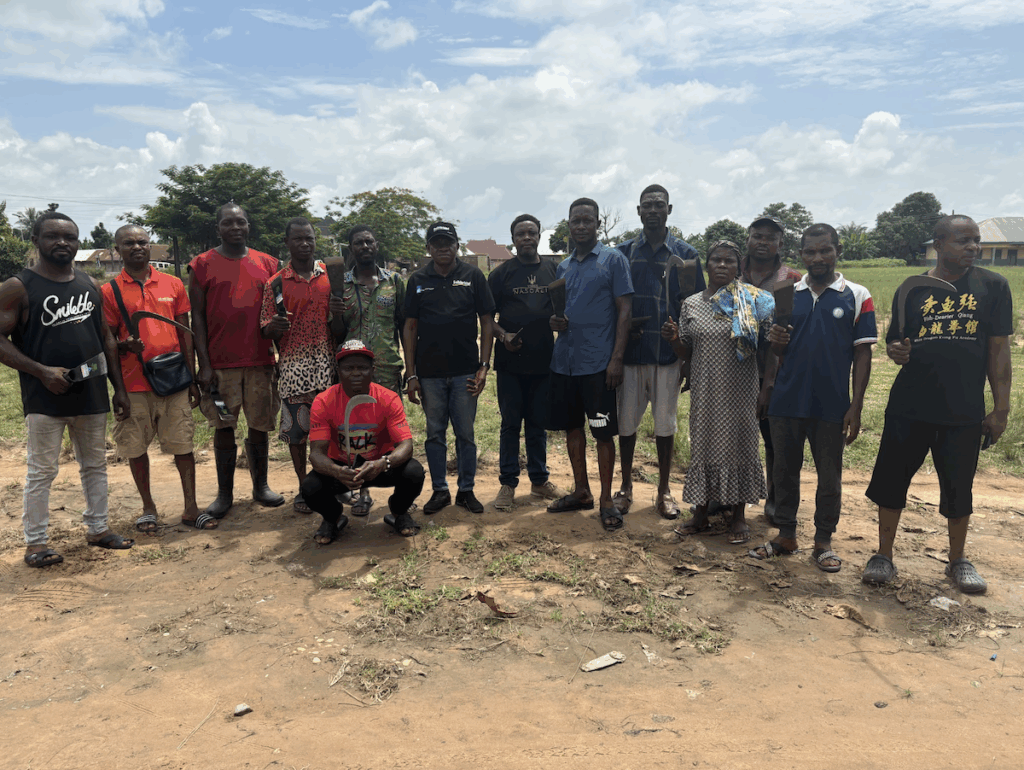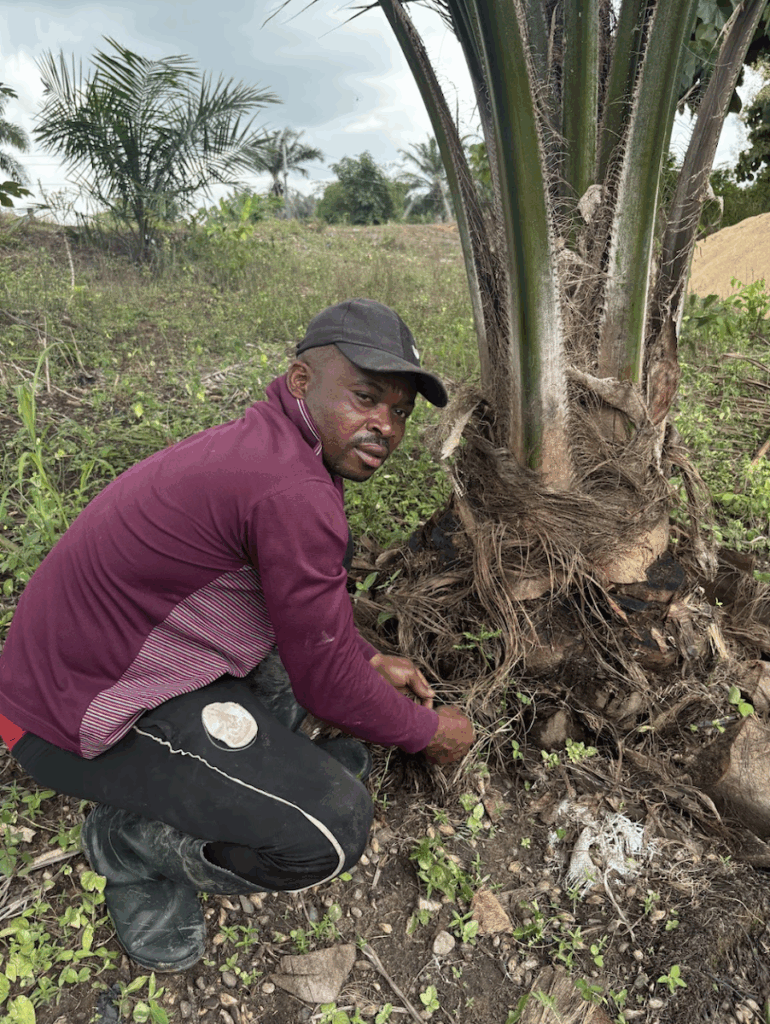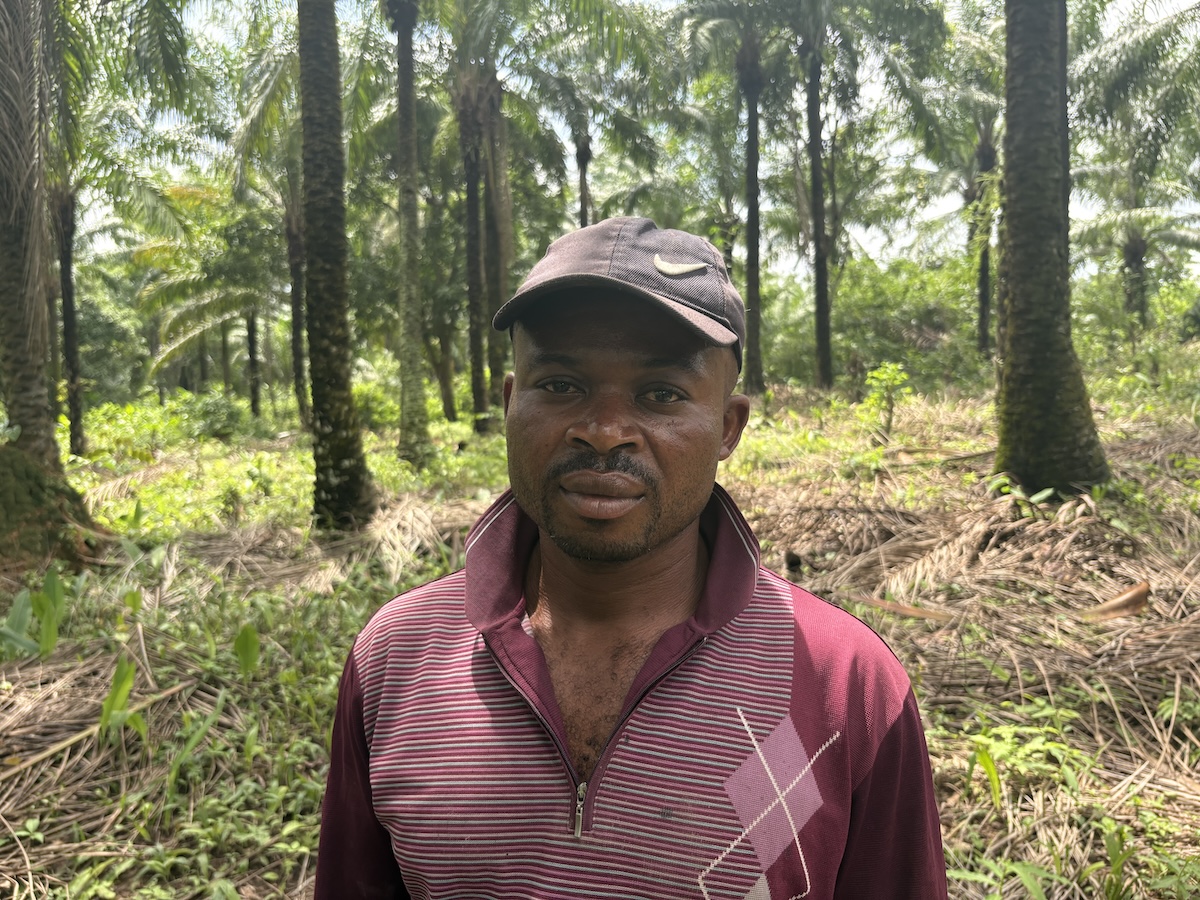Frank Brain graduated with a degree in statistics, and was always determined to escape farming. For years, he had watched his parents struggle on their oil palm farm with little to show for it other than low yields, limited resources for investment. His goal after graduating was simple: move to the city and secure a well-paying job.
For eight years, Frank submitted countless job applications, but few opportunities materialized.
“My dream was to get an office job that could sustain me. But after several failed attempts, I became frustrated and decided to become a commercial motorcycle rider to earn some income”
Frank Brain
Even though he had inherited the 3.6-hectare oil palm farm from his parents, Frank had no intention of working the land. To him, farming symbolized hardship and disappointment.
In 2021, a community facilitator invited him to join the local oil palm farmer group. Frank reluctantly joined the group, which gave him access training activities under the National Initiatives for Sustainable and Climate-Smart Oil Palm Smallholders (NISCOPS) programme.
The Dutch Ministry of Foreign Affairs and the UK Foreign, Commonwealth & Development Office support NISCOPS in Nigeria, with Solidaridad implementing the programme in Akwa Ibom, Cross River, Enugu and Kogi states.
Through the programme, Frank learned about climate-smart agriculture, sustainable land use and best management practices in oil palm cultivation. He also acquired practical skills in pruning, circle weeding, manure/fertilizer application and effective harvesting techniques. For the first time, Frank realized why his parents’ efforts had resulted in poor yields.

Motivated by this new knowledge, he started rehabilitating his oil palm farm while still searching for other jobs. Within six months, the farm began showing improvement that surpassed his expectations, convincing him to put aside the job hunt and embrace farming as a viable path, not just a fallback.
“Everything changed after I started implementing the best management practices. In the last two years, I’ve been harvesting an average of 178 fresh fruit bunches, about two tonnes, every two weeks. From this, I earn roughly 356,000 Naira (200 euros). With the income, I’ve even bought a car that I use for commercial purposes as an additional source of income.”
Frank Brain
Four years later, Frank has fully abandoned his pursuit of an office job. In fact, his farm earnings now exceed what many of his peers earn from their office jobs. With his growing income, he has diversified into cassava, potatoes and rice farming, building a stable business with multiple-income streams.
According to Kene Onukwube, programme manager at Solidaridad in Nigeria, Frank’s story reflects the wider transformation that NISCOPS is driving. The support through NISCOPS equips smallholder farmers to make informed, forward-looking decisions. This serves to not only enhance their individual and household income, but also support the restoration of degraded landscapes.
“Through peer-to-peer experience sharing, farmers are applying new knowledge and skills to improve their production, while also inspiring others in their communities to adopt best practices”
Kene Onukwube, programme manager at Solidaridad in Nigeria


